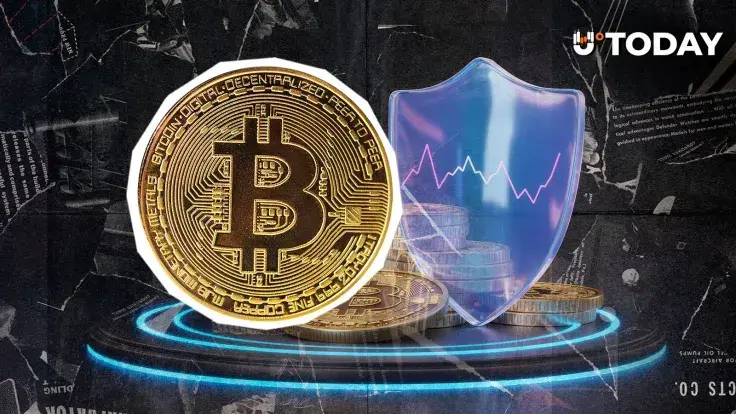Urgent: Worldcoin Thailand Raids Spark Crucial Licensing Debate
BitcoinWorld
Urgent: Worldcoin Thailand Raids Spark Crucial Licensing Debate
Recent events have put a spotlight on the operations of Worldcoin, specifically in Southeast Asia. This week, authorities in Thailand took decisive action, conducting simultaneous raids on several Worldcoin Thailand iris scanning locations across the country. This move underscores growing regulatory scrutiny within the virtual asset space.
What’s Happening with Worldcoin Thailand?
Thailand’s Securities and Exchange Commission (SEC) and the Cyber Crime Investigation Bureau (CCIB) have jointly led these operations. The target: numerous Worldcoin sites suspected of operating without proper authorization.
According to reports, around 100 Worldcoin Thailand iris scanning locations were reportedly active across the nation. These raids suggest a significant concern regarding adherence to local virtual asset laws.
Here are the key takeaways from the recent actions:
- Joint Operation: The SEC and CCIB collaborated, indicating a serious regulatory approach.
- Illegal Operation Claims: Authorities suspect these sites were functioning without the necessary licenses.
- Widespread Presence: The reported number of sites—around 100—highlights the scale of Worldcoin’s previous operations in Thailand.
Why is Worldcoin Thailand Under Scrutiny?
The core issue revolves around licensing and compliance with Thailand’s virtual asset regulations. Worldcoin’s model involves collecting iris scans to verify human uniqueness, offering WLD tokens in exchange. This unique approach, however, falls into a complex regulatory grey area in many jurisdictions.
In Thailand, virtual asset service providers are required to obtain specific licenses. These licenses ensure consumer protection, prevent money laundering, and maintain financial stability. The absence of such licenses for Worldcoin Thailand operations raises serious questions about legal compliance and investor safety.
Understanding Thailand’s Virtual Asset Regulations
Thailand has established a robust framework for regulating virtual assets. This framework aims to foster innovation while safeguarding market integrity. Companies dealing with virtual assets, including exchanges, brokers, and token issuers, must navigate a detailed licensing process.
Therefore, any entity facilitating the exchange or distribution of virtual assets, like WLD tokens, would typically need to comply with these stringent requirements. The raids suggest that Worldcoin Thailand may not have met these crucial legal obligations.
The Broader Implications for Worldcoin Thailand and Global Operations
The raids in Thailand are not isolated incidents. Worldcoin has faced similar regulatory challenges and privacy concerns in other countries, including Kenya, Germany, and France. Each country interprets virtual asset laws and data privacy regulations differently, creating a patchwork of compliance requirements.
For Worldcoin, these developments present significant operational hurdles. They highlight the necessity for a deep understanding and proactive adherence to local laws wherever they operate. The incident with Worldcoin Thailand serves as a powerful reminder for all cryptocurrency projects about the importance of regulatory foresight.
Challenges for Worldcoin:
- Regulatory Compliance: Navigating diverse global virtual asset laws.
- Data Privacy: Addressing concerns over biometric data collection.
- Public Perception: Maintaining trust amidst legal challenges.
This situation also offers actionable insights for other blockchain projects. Prioritizing legal counsel and engaging with local regulators early can prevent costly disruptions and ensure sustainable growth in new markets.
A Compelling Summary: Navigating Regulatory Waters
The recent raids on Worldcoin Thailand iris scanning sites are a stark reminder of the evolving regulatory landscape for virtual assets. They emphasize that innovation must go hand-in-hand with compliance, especially when dealing with sensitive user data and financial instruments. As the cryptocurrency space continues to mature, projects like Worldcoin must proactively address legal frameworks to build trust and ensure long-term viability.
Frequently Asked Questions (FAQs)
1. What exactly happened with Worldcoin in Thailand?
Thai authorities, including the SEC and CCIB, raided Worldcoin iris scanning locations due to suspicions of operating illegally without the necessary licenses under local virtual asset laws.
2. Why are Worldcoin’s operations considered illegal in this context?
Worldcoin’s activities, which involve the distribution of WLD tokens in exchange for iris scans, may be classified as virtual asset services. In Thailand, such services require specific licenses that the Worldcoin Thailand sites allegedly lacked.
3. What are the potential consequences for Worldcoin?
The immediate consequences could include cessation of operations, fines, and legal action. Globally, it adds to a pattern of regulatory challenges Worldcoin faces regarding data privacy and virtual asset compliance.
4. Does this affect Worldcoin’s operations in other countries?
While the raids are specific to Thailand, they highlight a broader global challenge for Worldcoin to comply with diverse national regulations. It serves as a precedent and may prompt increased scrutiny in other jurisdictions.
5. How does Thailand regulate virtual assets?
Thailand has a comprehensive regulatory framework for virtual assets, overseen by the SEC. It requires entities dealing with virtual assets to obtain licenses, adhere to strict operational guidelines, and ensure consumer protection.
Did you find this article informative? Share it with your network to keep others informed about the latest developments in crypto regulations and compliance!
To learn more about the latest crypto market trends, explore our article on key developments shaping virtual asset institutional adoption.
This post Urgent: Worldcoin Thailand Raids Spark Crucial Licensing Debate first appeared on BitcoinWorld.
You May Also Like

The Big Whale Has Gone All In: Accelerating Heavy Buying in This Altcoin

Bitcoin Core Drops Four New Security Alerts, What’s at Risk?
